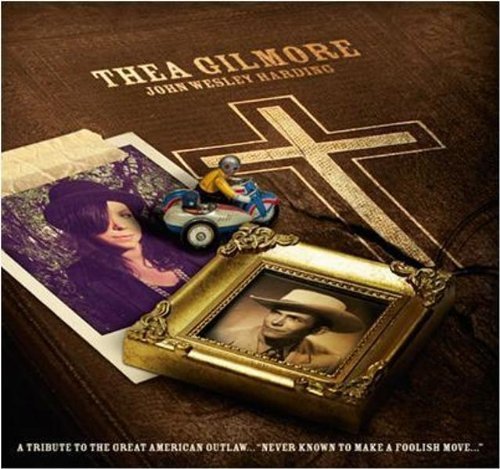
Thea Gilmore
John Wesley Harding
Release Date: Jun 28, 2011
Genre(s): Folk, Pop/Rock
Record label: Fulfill
Music Critic Score
How the Music Critic Score works
Buy John Wesley Harding from Amazon
Album Review: John Wesley Harding by Thea Gilmore
Very Good, Based on 4 Critics
Based on rating 8/10
John Wesley Harding just might be Bob Dylan’s strangest album—and that’s saying something. Released in December 1967, 18 months after a serious motorcycle accident led him to drop out of the public eye, it’s an understated acoustic collection that was startlingly (and willfully) out of step in the year of the Beatles’ Sgt. Pepper’s Lonely Hearts Club Band and the Rolling Stones’ Their Satanic Majesties Request.
Based on rating 3/5
"Should one attempt to reinterpret a 40-year-old, somewhat legendary piece of work? Probably not," writes English folkie Thea Gilmore. Nonetheless, as Bob Dylan's 70th birthday approaches, she has covered his album John Wesley Harding in its entirety as a tribute. The man himself will probably be tickled by her faithfulness to the original's sense of solitude; reflectiveness is something Gilmore does well, in a voice that becomes more beautifully burnished by the year.
Based on rating 6/10
Encouraged by the positive response to her performance at the Glasgow Royal Concert Hall's 70th Birthday tribute to Bob Dylan, singer/songwriter Thea Gilmore pays further respect to one of her biggest influences, by recording the entirety of his 1967 eighth studio album, John Wesley Harding. No stranger to the concept of the covers album (2004's Loft Music) or interpreting the folk legend's work ("I Dreamed I Saw St Augustine" appeared on 2002's Songs from the Gutter), the Oxford-born chanteuse appears entirely comfortable wrapping her ethereal and breathless tones around the 12 tracks that she describes as Dylan's "most sustained and satisfying record. " Produced by husband Nigel Stonier, Gilmore mostly opts for the subtle homage approach than any radical reworkings, simply substituting acoustic guitar for mandolin on the title track, replicating the languid country sound of "I'll Be Your Baby Tonight" and the rockabilly grooves of "Down Along the Cove," and slightly ramping up the guitars on the jangly Byrds-inspired take on "I Pity the Poor Immigrant.
Opinion: Excellent
A worthy tribute to one of Dylan’s greatest albums. Patrick Humphries 2011 On its original UK release in 1967, the response to Bob Dylan’s John Wesley Harding was one of shock. Gone were the 12-minute songs about Sad-Eyed ladies; gone was the corkscrew-haired Messiah, last seen and heard on 1966's Blonde on Blonde. Here was a different looking and a wholly different sounding Dylan.
'John Wesley Harding'
is available now

